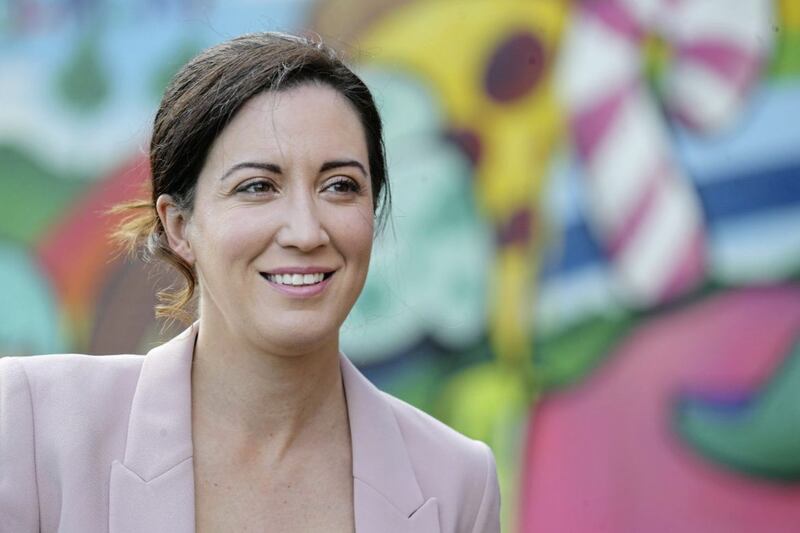AS late as the 1990s, children with suspected autism in Northern Ireland were sent to London for a diagnosis.
By the end of that decade the north's health trusts were assessing and diagnosing under-18s, with an explosion in cases over the past five years.
Latest figures also show that autism prevalence rates among school age children - there is no data for adults - have soared with one in 24 pupils now diagnosed with the developmental disability, which can cause significant social, communication and behavioural difficulties.
Increased awareness and the introduction of the Autism Act in 2011 have been linked to the staggering rise, with Department of Health research showing those from from socially and economically deprived areas are disproportionately affected. Boys are also three times more likely to be diagnosed than girls.
A total of 2,562 children were diagnosed as autistic across the north last year, compared with 1,472 five years previously.
For Kerry Boyd, chief executive of Autism NI, a charity set up over 30 years ago to support families, the growth in rates hasn't been matched by government investment in services.
The charity has received 5,000 calls to its helpline over the course of the Covid-19 pandemic - some "lasting an hour" with parents "at the end of their tether" .
Ms Boyd also raised concerns about the major disparities in diagnoses and waiting lists across health trusts, with some families forced down the private route.
"Every year the prevalence rates keep getting higher. Ten years ago, the rate was one in 100, now it’s one in 24 with 4.2 per cent of the school population diagnosed last year. We’ve got possibly the highest rate in world. Hong Kong was supposed to be highest at 3.2 per cent," Ms Boyd said.
"I know the Southern trust is the model they want to follow. It literally has a third of the diagnosis of the other trusts. Why is it different?
"I’ve been with Autism NI for almost 13 years now and I’ve just seen a growing need within the autism community for more support.
"It does concern me that the prevalence rate has gone up by 320 per cent in a decade. Has the amount of investment and resources went up by that? No, it hasn’t.
"Some families are waiting up to two years to get a diagnosis but a private one can be done in a couple of months, which health trusts accepting these referrals - something they didn't do a decade ago. You need a diagnosis is to access support.
"So it’s causing a health inequality where families who can afford to get a private diagnosis basically get pushed up the ladder in terms of support services.
"Early intervention is key. Everyone knows you have to get in there to work with those children, the first couple of years are the most important. To delay something for two years is unacceptable."
Autism NI worked throughout the pandemic but were forced to switch its home visits to online Zoom sessions.
"We’ve had to do everything virtually. We’ve also got 22 support groups throughout NI but we’re finding it very hard to do things remotely. People need face to face contact," Ms Boyd added.
"We have an early intervention service ourselves, some of it is funded by the trusts where it’s a three week intervention.
"Our staff are highly trained but the early intervention should last much longer. After three weeks, many of the families are devastated that we’re not coming back. Our waiting lists are through the roof. We just don’t have enough capacity at the moment.
"I feel as CEO of charity - I’m nearly doing myself out of a job here - the government should be doing our job. There should a uniform early intervention service throughout Northern Ireland, so everyone gets the same support.
"Diagnosis should be done within 13 weeks and then straight after that, a proper eight to 12 week early intervention service should be in place. They shouldn’t be relying on the likes of us to get money from different funders to do it."
Last month the Department of Health published an interim autism strategy for the next two years, with health minister Robin Swann pledging that services must be improved as a "priority".
The cross-departmental strategy aims to tackle problems from delays in early diagnosis and interventions through to addressing educational/employment opportunities for autistic adults.
In a statement to The Irish News, Mr Swann noted the strategy placed an emphasis on the need for early intervention for those "regardless of whether there is an autism diagnosis or not.”
He added that "significant investment" has been made in autism services since 2016, with "an additional £2 million being allocated to children’s autism services on a recurrent basis".
"Alongside this investment has been the allocation of transformation funding to facilitate the development of a new regional framework, informed by a review of children’s autism services, which will underpin greater provision of early intervention for families and will provide the framework for standardisation in autism services."



